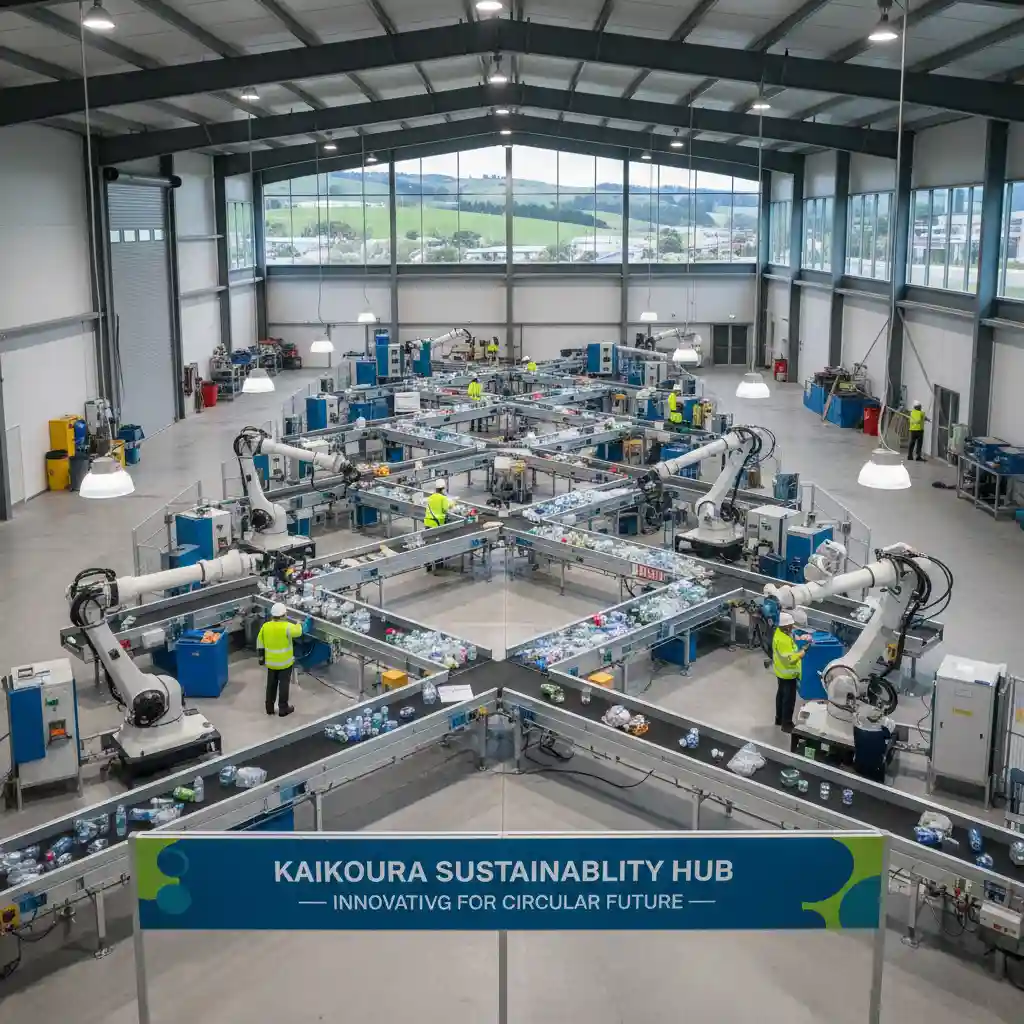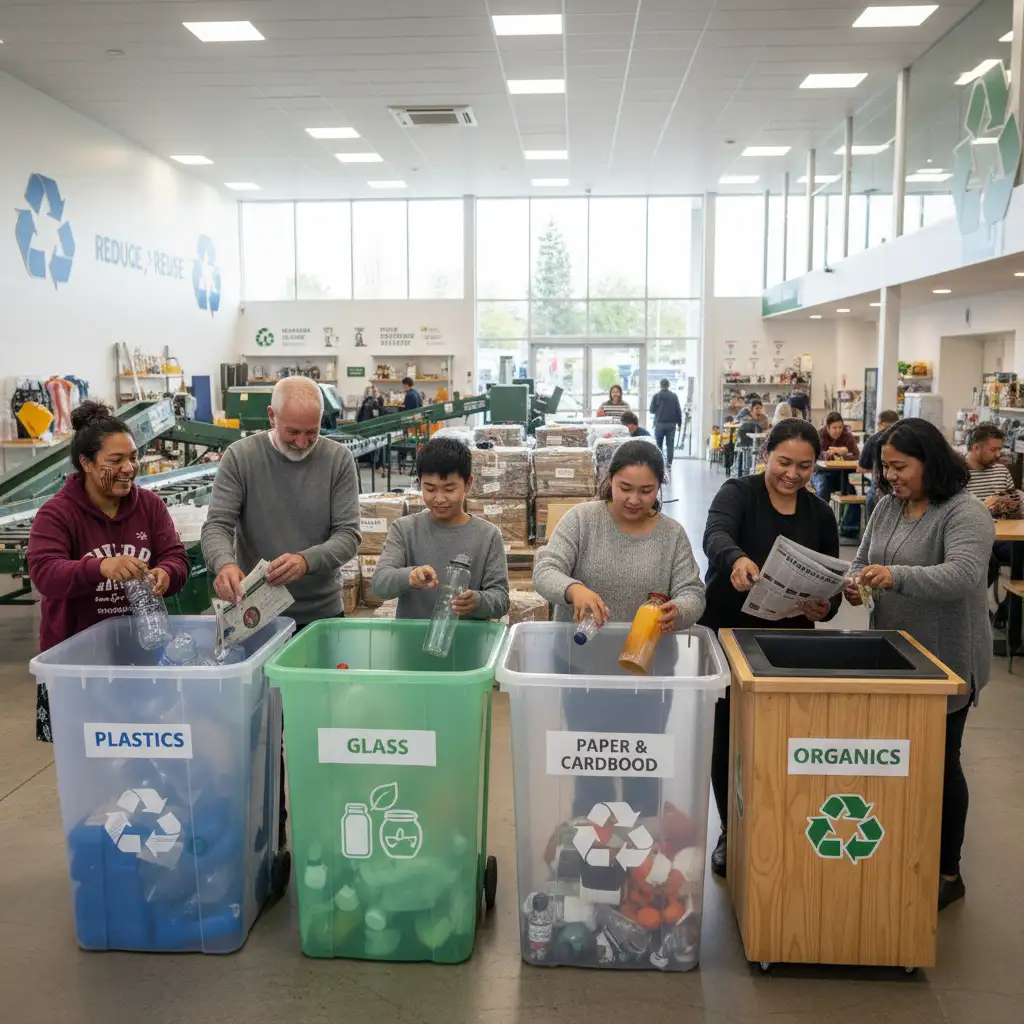Driving Sustainable Innovation: NZ’s Waste Management Policies
Aotearoa New Zealand, renowned globally for its pristine landscapes and unique biodiversity, faces a critical challenge: managing its waste effectively to protect its natural heritage. As a nation committed to environmental stewardship, New Zealand is at the forefront of implementing progressive waste management policies designed not just to dispose of waste, but to foster a truly circular economy.
This article delves into how NZ is driving sustainable innovation through its comprehensive waste management policies, transitioning from traditional linear models to a future where waste is a valuable resource. We’ll explore the legislative backbone, key initiatives, and the broader impact on communities and businesses striving for a greener, more sustainable lifestyle.
Table of Contents
- 1. The Foundation: New Zealand’s Commitment to a Circular Economy
- 2. Pillars of Progress: Core Waste Management Policies in Action
- 3. Beyond Landfills: Innovation and Future Directions
- 4. The Role of Communities and Businesses
- Conclusion: A Collective Journey Towards a Zero Waste Aotearoa
- Frequently Asked Questions (FAQ)
- References & Sources
1. The Foundation: New Zealand’s Commitment to a Circular Economy
New Zealand’s approach to waste management is deeply rooted in its kaitiakitanga (guardianship) ethos. Recognizing the finite nature of resources and the environmental impact of a ‘take-make-dispose’ linear economy, the nation is actively pivoting towards a circular model. This paradigm shift aims to keep resources in use for as long as possible, extract the maximum value from them whilst in use, then recover and regenerate products and materials at the end of each service life.
1.1 Key Legislative Frameworks
At the heart of New Zealand’s progressive stance is robust legislation that provides the framework for waste reduction and resource recovery:
- Waste Minimisation Act 2008 (WMA): This cornerstone legislation aims to encourage waste minimisation and reduce the harm of waste. It introduced the waste levy and provides tools like product stewardship and waste management plans for local authorities.
- New Zealand Waste Strategy (NZWS 2020): This strategy outlines the government’s long-term vision for a low-waste, high-resource-efficiency economy. It sets ambitious targets and focuses on organic waste, plastics, and construction & demolition waste.
- Resource Management Act 1991 (RMA): While broader in scope, the RMA indirectly supports waste management by controlling adverse environmental effects, including those from landfills and other waste facilities.
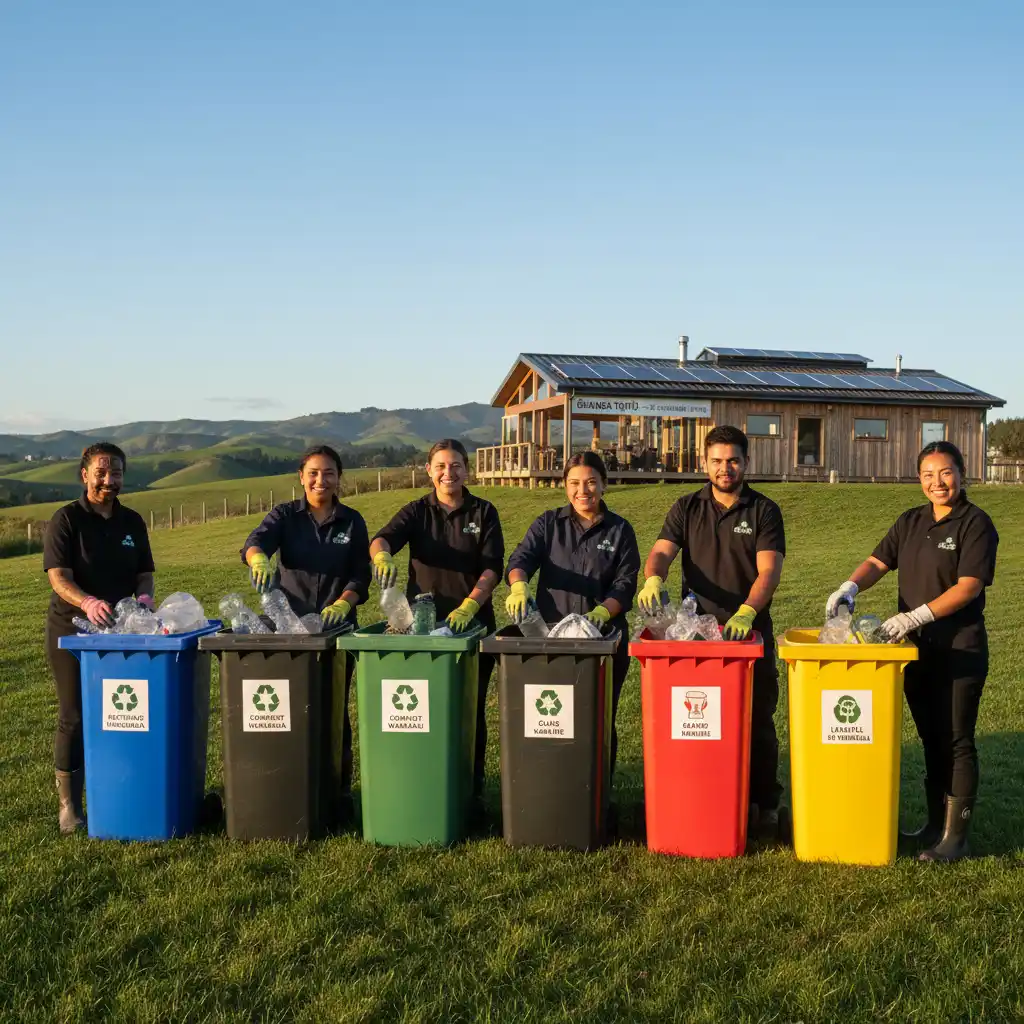
📈 Stat Callout:
New Zealand aims to reduce total waste sent to landfills by 10% per person by 2030, compared to 2018 levels. This ambitious target highlights the country’s commitment to significantly curbing waste generation.
2. Pillars of Progress: Core Waste Management Policies in Action
New Zealand’s commitment to waste reduction isn’t just theoretical; it’s backed by specific policies that drive tangible change, pushing both producers and consumers towards more sustainable practices.
2.1 The Waste Minimisation Levy
One of the most impactful tools is the waste minimisation levy, introduced under the WMA. This levy is applied to waste disposed of at landfills, creating a financial incentive to reduce waste and divert materials from landfill. Revenue from the levy is then reinvested into initiatives that promote waste minimisation, resource recovery, and environmental protection.
“The waste levy is crucial for funding a wide range of projects, from community recycling centres to innovative material recovery technologies, truly driving sustainable innovation at the grassroots level.” – Ministry for the Environment.
2.2 Product Stewardship Schemes
These schemes hold producers responsible for the environmental impacts of their products throughout their lifecycle, from design to end-of-life. NZ has a framework for both voluntary and regulated product stewardship. Key areas include:
- Tyres: A regulated scheme ensures responsible collection and recycling of end-of-life tyres, preventing them from ending up in landfills or illegally dumped.
- Electronic Waste (E-waste): Voluntary schemes are growing, with calls for regulated approaches to manage the rapidly increasing volume of discarded electronics.
- Plastics: Initiatives are exploring effective stewardship for various plastic types, focusing on design for recyclability and improving collection infrastructure.
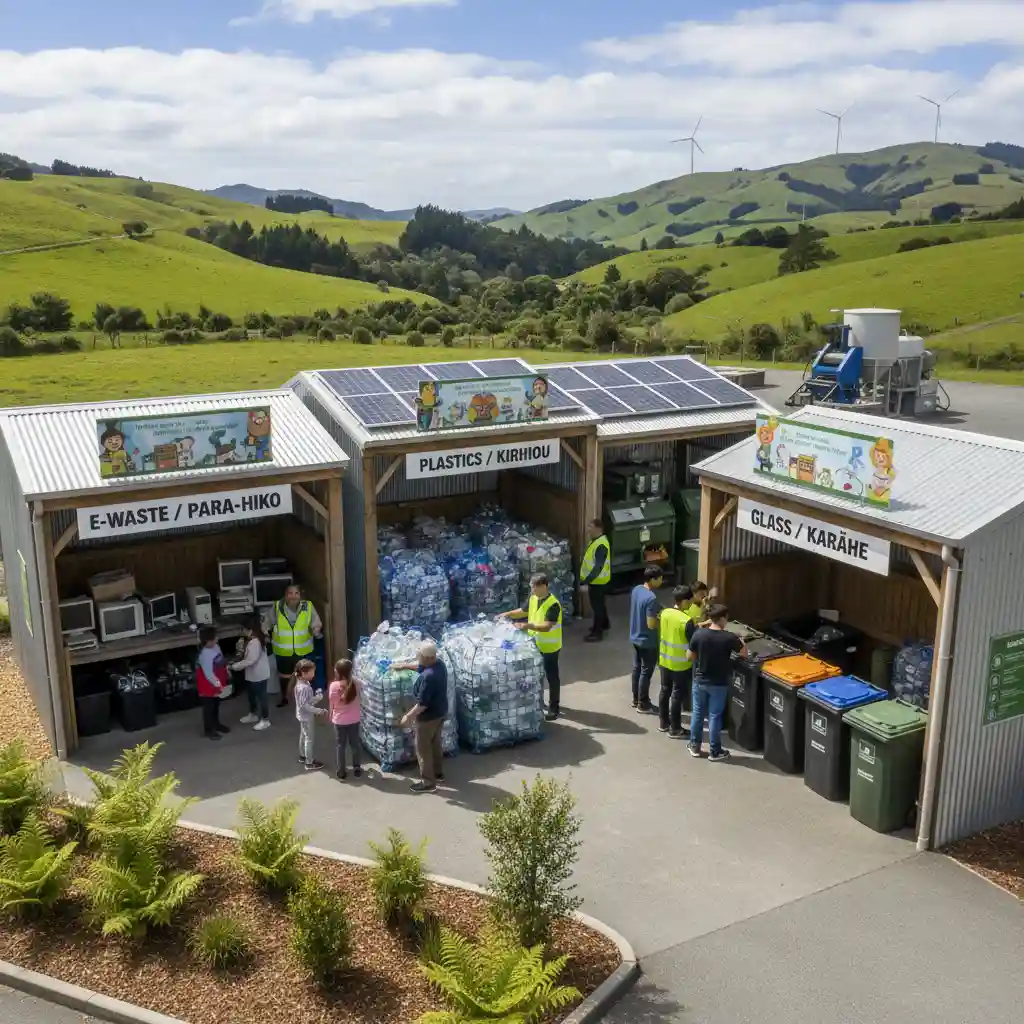
📈 Stat Callout:
Over NZ$100 million has been collected through the waste levy since its inception, with a significant portion allocated to local authority and community waste minimisation projects. This funding is vital for infrastructure and innovation.
3. Beyond Landfills: Innovation and Future Directions
While foundational policies are in place, New Zealand continues to innovate and adapt its strategies to address emerging waste streams and embrace cutting-edge solutions. The focus is increasingly on preventing waste upstream and transforming unavoidable waste into valuable resources.
3.1 Advancing Organics Management
Food waste and other organic materials constitute a significant portion of landfill waste, generating harmful greenhouse gases. NZ policies are targeting this through:
- Curbside Food Scraps Collection: Expanding municipal collection services for food and green waste to divert it to composting or anaerobic digestion facilities.
- Food Waste Reduction Initiatives: Campaigns and support for businesses and households to reduce food waste at the source.
3.2 Tackling Plastic Pollution
New Zealand has taken bold steps to address plastic pollution, a global environmental crisis, through a multi-pronged approach:
- Single-Use Plastic Bans: Phasing out hard-to-recycle and unnecessary single-use plastic items like bags, cutlery, and produce bags.
- Recycling Infrastructure Investment: Improving sorting and processing capabilities for plastics, alongside exploring advanced recycling technologies.
- NZ Plastics Packaging Guidelines: Encouraging businesses to design plastic packaging that is reusable, recyclable, or compostable.
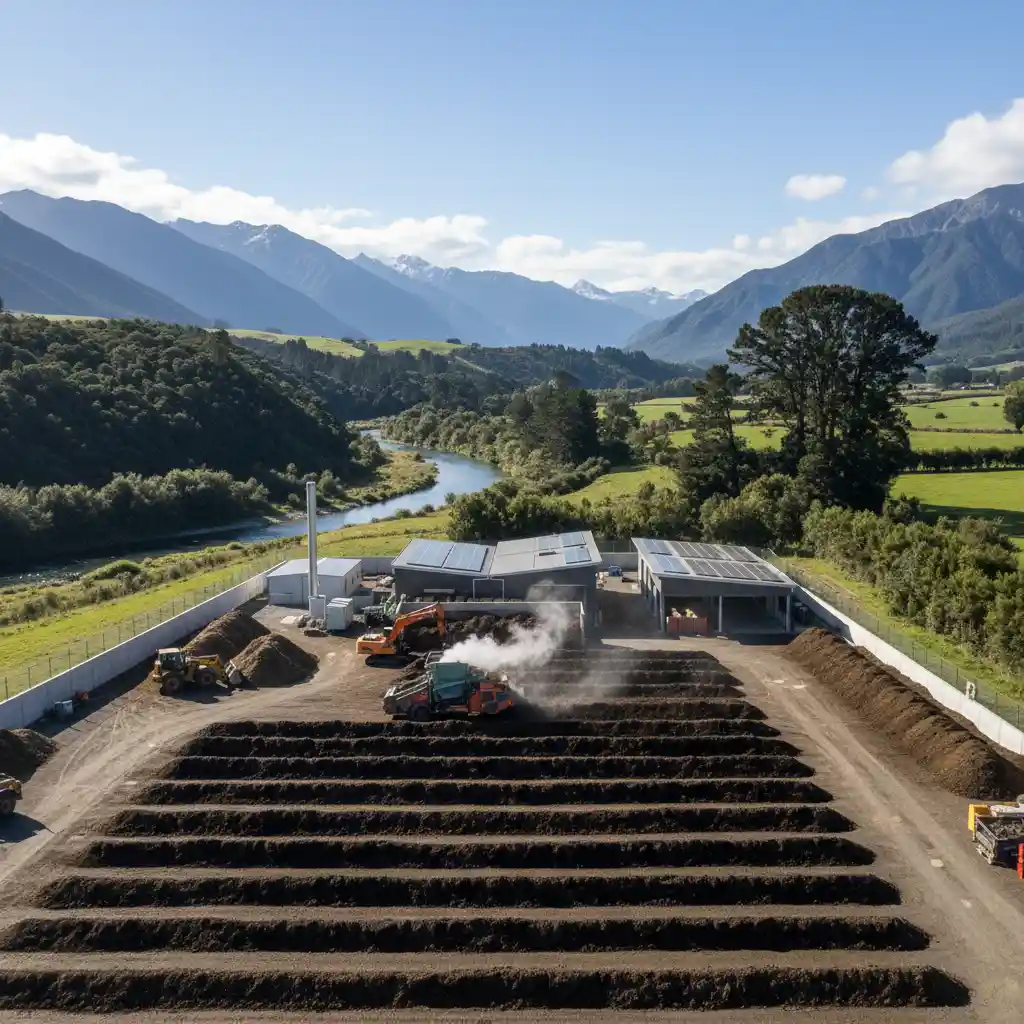
📈 Stat Callout:
Organic waste makes up approximately one-quarter of household waste going to landfill in New Zealand. Effective policies are vital to divert this valuable resource and reduce methane emissions.
4. The Role of Communities and Businesses
While government policies provide the direction, the successful implementation and evolution of waste management in New Zealand depend heavily on the active participation of its communities and innovative spirit of its businesses. This collaborative approach is key to driving sustainable innovation nationwide.
4.1 Local Government and Community Initiatives
Local councils play a critical role, often leading the charge with tailored waste management and minimisation plans. Communities across New Zealand are also vibrant hubs of sustainability, with initiatives such as:
- Repair Cafes: Encouraging people to repair items rather than discard them.
- Resource Recovery Parks: Facilities where residents can drop off a wide range of materials for recycling, reuse, and even upcycling.
- Zero Waste Events: Promoting events designed to produce minimal or no waste.
4.2 Business Innovation for Sustainability
New Zealand businesses are increasingly integrating circular economy principles into their operations. From manufacturers designing products for longevity and recyclability to retailers offering refill stations and take-back programs, the private sector is a vital partner in the journey towards a waste-free future.
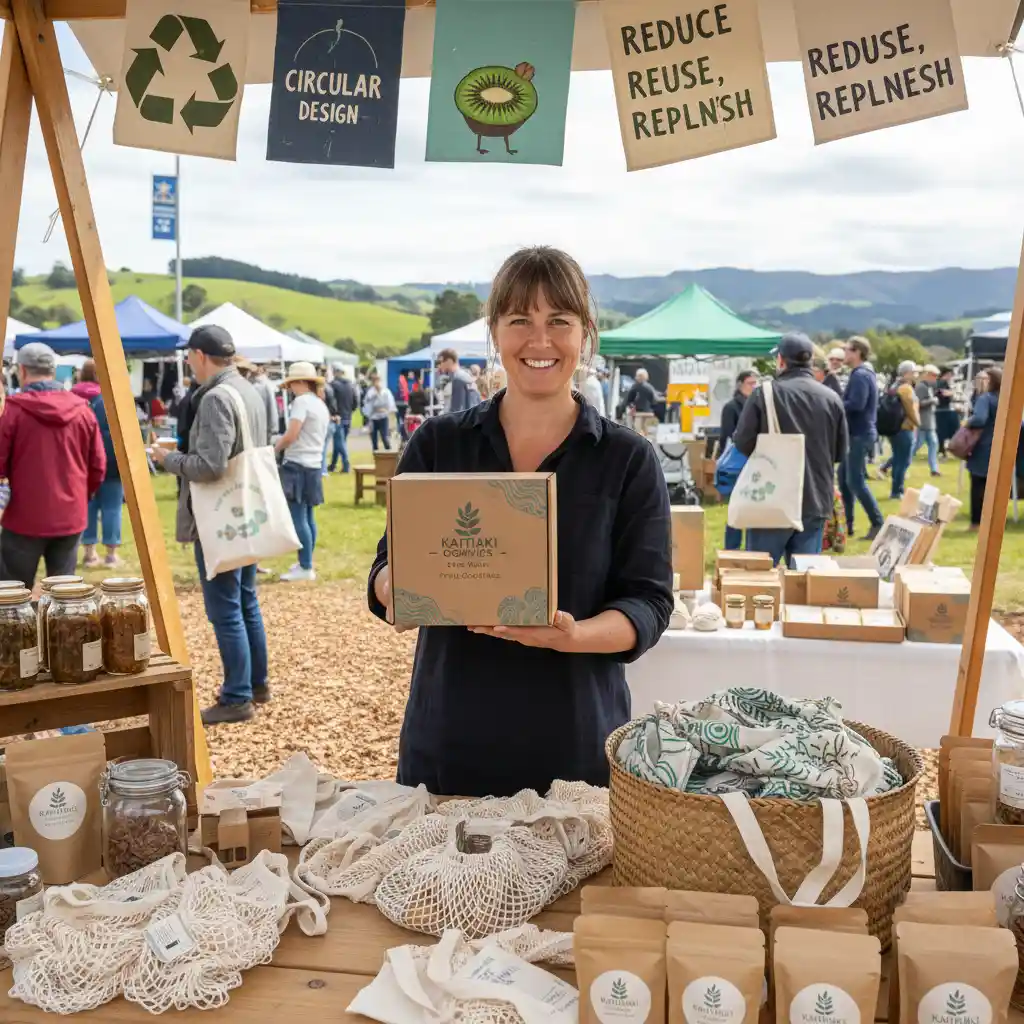
Conclusion: A Collective Journey Towards a Zero Waste Aotearoa
New Zealand’s waste management policies are more than just regulations; they are a clear declaration of its intent to protect its unique environment and foster a sustainable future. By focusing on legislative frameworks, innovative schemes like the waste levy and product stewardship, and by actively engaging communities and businesses, NZ is indeed driving sustainable innovation.
The path to a zero-waste Aotearoa is a collective one, requiring continuous effort and adaptation. Yet, with its robust policies and a growing commitment from its people, New Zealand is paving the way for a truly circular economy, setting a benchmark for sustainable living on the global stage.
Frequently Asked Questions (FAQ)
What is New Zealand’s main goal for waste management?
New Zealand’s overarching goal is to transition towards a circular economy, significantly reducing waste sent to landfills and maximizing resource recovery. This is guided by the New Zealand Waste Strategy 2020.
What is the Waste Minimisation Act 2008?
The Waste Minimisation Act 2008 is a key piece of legislation that encourages waste minimisation, reduces waste’s harmful effects, and promotes resource recovery. It introduced the waste levy and supports product stewardship schemes.
How does the waste levy work in NZ?
The waste levy is a charge applied to waste disposed of at landfills. The revenue collected is then reinvested into waste minimisation initiatives, infrastructure, and projects managed by local councils and community groups, effectively incentivizing waste reduction.
What are Product Stewardship Schemes?
Product stewardship schemes make producers responsible for the environmental impacts of their products throughout their entire lifecycle, from design to end-of-life recycling or disposal. In NZ, these are applied to items like tyres and are being explored for electronics and plastics.
What is New Zealand doing about plastic waste?
New Zealand has implemented bans on various single-use plastics, provided guidelines for plastic packaging design, and is investing in improving recycling infrastructure. The goal is to reduce plastic pollution and move towards reusable and compostable alternatives.
How can individuals contribute to NZ’s waste management goals?
Individuals can contribute by reducing consumption, reusing items, recycling correctly, composting food and green waste, participating in local community initiatives (like repair cafes), and supporting businesses committed to sustainable practices. Following local council guidelines is essential.
References & Sources
- Ministry for the Environment. (n.d.). Waste Minimisation Act 2008. Retrieved from environment.govt.nz
- Ministry for the Environment. (2020). Aotearoa New Zealand Waste Strategy. Retrieved from environment.govt.nz
- Stats NZ. (2022). Environment Aotearoa 2022. Retrieved from stats.govt.nz
- WasteMINZ. (n.d.). Product Stewardship. Retrieved from wasteminz.org.nz
- Greenpeace Aotearoa. (n.d.). Plastic Pollution in Aotearoa. Retrieved from greenpeace.org
